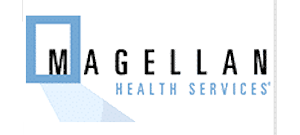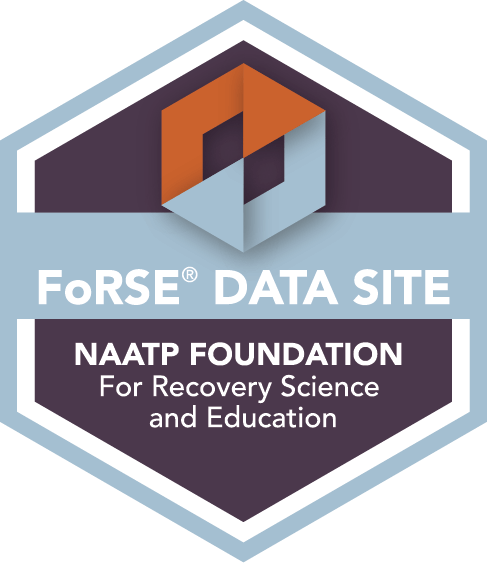Finding mental health care in Illinois can be challenging, particularly in rural areas, but Northern Illinois Recovery Center is here to help. We’re proud to offer premier, accessible addiction and mental health care to those who need it most. Learn more about our addiction counseling programs and the therapy modalities they use to discover how we can help you recover from substance abuse.

Why is Addiction Counseling Integral to Recovery?
Addiction therapy services, such as counseling, can enable discoveries about yourself and ways to integrate healthy coping skills. Many recovering individuals struggle to maintain motivation after an initial detox. The physical and mental strain of the withdrawal symptoms and malnutrition can affect a person’s ability to focus on recovery.
Insurance Verification




Primary Addiction Counseling Services
You participate in many kinds of addiction counseling services during rehab, such as:
Cognitive Behavioral Therapy (CBT)
Dialectical Behavioral Therapy (DBT)
Individual Therapy
Individual therapy is a thorough and intimate way to uncover the causes of your substance abuse and mental health issues. It can be uncomfortable to address these traumatic memories/experiences, emotions, and intense feelings in a group or family setting. Therefore, individual therapy is conducted on a one-on-one basis through a mental health professional such as a counselor, psychiatrist, or social worker.
During individual counseling sessions, the therapist provides a safe, confidential, and non-judgmental space for the person to explore their thoughts, feelings, and behaviors. Topics discussed can range from stress, anxiety, depression, and trauma to relationship issues, self-esteem, and personal goals.
Group Therapy
Family Therapy
Family therapy allows you and your loved ones to begin healing the damage in your relationships. Addiction is often recognized as a family disease. Your home environment and genetics play a role in the risk factors of addiction. Families affected by substance abuse can be torn between intense feelings of fear and disappointment. Finding opportunities to share intimate experiences with your loved ones can help bridge the disconnect caused by addiction.
Dual Diagnosis Treatment
Dual diagnosis treatment offers help for those struggling with both addiction and mental health disorders. This is also referred to as “co-occurring conditions.” Sadly, a lot of addictions get their start as people try to self-medicate a mental health condition. For example, those with anxiety disorders often use depressants or alcohol to reduce the symptoms of the disorder.
Unfortunately, they develop a substance use disorder. Dual diagnosis programs largely treat addiction and mental health conditions separately, but with both forms of treatment in mind. This allows both you and the treatment staff to remain focused on one thing at a time. Treating both disorders is crucial as an attempt to prevent substance abuse relapse.

Peer Support/Support Programs
Relapse Prevention
Relapse prevention helps you learn about methods for avoiding slips and relapses. After an evaluation, you and your counselor will craft a set of guidelines for your practice when triggers appear. Relapse is a frustrating component of addiction recovery, with many recovering individuals experiencing a lapse at least once.
A relapse prevention plan could outline specific scenarios and phrases to use in the event of substance use. A relapse prevention plan can be modified and reevaluated to meet your demands.
Holistic Therapies
are treatment approaches that focus on the whole person—mind, body, and spirit—rather than just addressing specific symptoms or conditions. These therapies aim to promote overall well-being and balance by considering the interconnectedness of physical, emotional, mental, and spiritual health.
Holistic treatments often complement traditional medical or psychological treatments and can be tailored to an individual’s unique needs. It is rooted in the belief that true healing comes from addressing all aspects of a person’s life.
What are the Benefits of Addiction Counseling?

Addiction counseling helps individuals explore the underlying factors contributing to their addiction, such as trauma, stress, mental issues, or environmental influences. Gaining insight into these causes can empower individuals to address them effectively.
Addiction counselors teach practical tools and techniques to manage cravings, stress, and triggers without resorting to addictive behaviors. These strategies can include mindfulness, problem-solving, and emotional regulation skills.
Addiction counseling fosters a sense of connection and support, whether through one-on-one sessions, group therapy, or family counseling. A strong support system is crucial for maintaining motivation and accountability during recovery.
Many individuals with addiction also face co-occurring mental health conditions like anxiety, depression, or PTSD. Counseling addresses these issues in conjunction with addiction, promoting overall well-being. Therapists may use evidence-based approaches like cognitive behavioral therapy or dialectical behavior therapy to treat both addiction and mental health challenges.
Addiction counseling focuses on relapse prevention by helping individuals identify high-risk situations and develop plans to navigate them successfully. It also builds resilience and confidence to handle setbacks without returning to harmful behaviors.
Addiction often strains relationships with family, friends, and colleagues. Counseling can help repair these connections by enhancing communication, fostering trust, and promoting understanding. Family therapy, in particular, can address dynamics that may contribute to or be affected by addiction.
Counseling provides ongoing support and guidance throughout the recovery journey, helping individuals stay committed to their goals. It encourages the development of healthy habits, routines, and a sense of purpose, which are essential for sustained recovery.
Addiction counseling helps individuals rediscover their strengths, values, and goals, fostering a sense of empowerment and self-worth. It encourages personal growth and the pursuit of a fulfilling, addiction-free life.
By addressing the physical, emotional, and psychological aspects of addiction, counseling plays a vital role in helping individuals achieve and maintain recovery while improving their overall quality of life.
Testimonials

Addiction Counseling FAQs
There isn’t a single “most effective” therapy for everyone, as the best approach depends on the individual’s unique needs. However, evidence-based practices like CBT are highly successful because they help individuals identify and change negative thought patterns and behaviors related to their addiction. Other effective modalities include Motivational Interviewing, which enhances internal motivation to change, and contingency management, which provides positive reinforcement for healthy choices.
Addiction counseling typically begins with an initial assessment where addiction counselors gather information about your history, challenges, and goals to create a personalized treatment plan. Throughout the process, you’ll work with your counselor to set realistic goals, monitor progress, and adjust the plan as needed. It’s a collaborative journey that not only addresses substance use disorders but also fosters personal growth, self-awareness, and resilience.
The duration of addiction therapy varies significantly from person to person, as it is influenced by factors like the severity of the addiction, co-occurring mental health conditions, and an individual’s commitment to the process. Some individuals may benefit from short-term therapy lasting a few months, while others with more complex needs might engage in counseling for a year or longer. Ultimately, therapy continues for as long as it is providing benefit and supporting the individual’s recovery goals.
Many health insurance plans do provide coverage for addiction counseling. The extent of coverage, however, can vary widely depending on your specific insurance provider, plan details, and whether you choose an in-network or out-of-network counselor. Contact our admissions teams to verify your insurance and to understand your benefits, including any copays, deductibles, or limitations on the number of sessions covered.
Addiction counseling is a core component of both inpatient (residential) and outpatient treatment programs, making it a highly versatile form of support. In an inpatient setting, counseling occurs intensively within a structured, live-in environment, which is ideal for individuals needing a high level of care and stability. Outpatient counseling allows individuals to live at home while attending scheduled sessions, offering greater flexibility for those with work or family commitments and serving as a crucial step-down after inpatient care.













